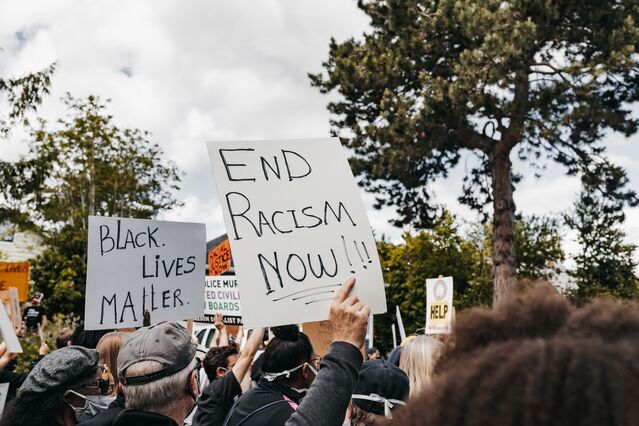
The heinous murder of George Floyd has swept the world with inconsolable grief, anguish, and rage. It has also, for many, created a sense of guilt, discomfort, and shame, as an amplified light is being shed on the role racism continues to play in our society, and what is being revealed is quite disparate from the façade of racial progress that has been generally upheld since the end of the 20th century. As we look at ourselves in the mirror and see our values, beliefs, and practices for what they really are, it is worth asking, to what extent are we racist ourselves, and what does racism actually look like?
Are you racist? Maybe you are but you’ve never noticed. Not only is racism a deeply ingrained and ever-pervasive fragment of our society, but the aforementioned façade has enabled it to take more subtle, yet insidious forms that threaten the success and well-being of minority populations. While murder and hate crimes are the most obvious forms of racism, it usually takes place under the guise of subtle comments or jokes, social microaggressions, or underlying prejudice that inform common daily decisions, such as where to work or go to school, who to talk to or hang out with, who to promote, or which students receive additional attention or support from their teachers. It’s the underlying judgment masked as fear that compels us to cross the street or clench our bags when we pass by a person who fits the stereotypical image of a “criminal” or “low life.”
Our society was founded on colonization and slavery, where indigenous and African populations were desecrated, dehumanized, and terrorized by European settlers who felt a need to exercise power and control. Even though slavery was abolished in 1865, its principles have been conserved and fortified over generations. It is for this reason current institutional structures still perpetuate the very inequities that were brought about by colonization and slavery many centuries ago, ultimately leaving people of color; especially African Americans, with poor life chances and outcomes that often entrap them in their socioeconomic circumstances.
Moreover, the development of the police force was largely a product of slavery, as one of their main functions was to preclude freed slaves from having the same rights as European Americans by any means necessary. Today, the mission of the United States police force is to protect and serve the community, however, vestiges from the past continue to undermine this mission which results in civic tension and distrust.
A similar but less prominent example of generational oppression can be seen in the issue of domestic violence. Fifty years ago, domestic violence cases were perceived as trivial by law enforcement, and they did little to intervene because the issue was considered a “family matter.” After participating in various demonstrations and seeing far too many domestic violence-related deaths, I finally understood the fact that; like in the case of African Americans, violence against women is violence against humanity, and that it was too serious of a problem to overlook.
As such, we have seen throughout history that our voices and actions are primary vehicles for change, even if that change seems glacial. Taking a passive or silent stance on the issue of racism not only hinders the strength of the anti-racism movement, but it keeps us complicit in maintaining the status quo, which has been shown time and time again to result in the relentless discrimination and killing of African Americans.
While the process of unlearning racism can be tedious, there are several things we can do to strive to become anti-racist. In addition to street protests, we can become activists at home by becoming aware of our own prejudice, educating ourselves and our families about cultural differences and learning to celebrate them, promoting respect and tolerance, condemning racial jokes and/or messages on social media, and raising our voices when we see injustices in any setting, whether it be at home, in the streets, at work, in school, or in the very institutions that are supported by our tax dollars.
Although we have a long way to go to eradicate racism, the world is shifting, and it starts with us doing the internal work. Our youth have spearheaded a public outcry far greater than ever before, and while bilateral violence is not the answer, we must wholeheartedly devote ourselves to ensuring that their voices are not silenced, and that we as a people strive to create hope in times that seem completely hopeless.


